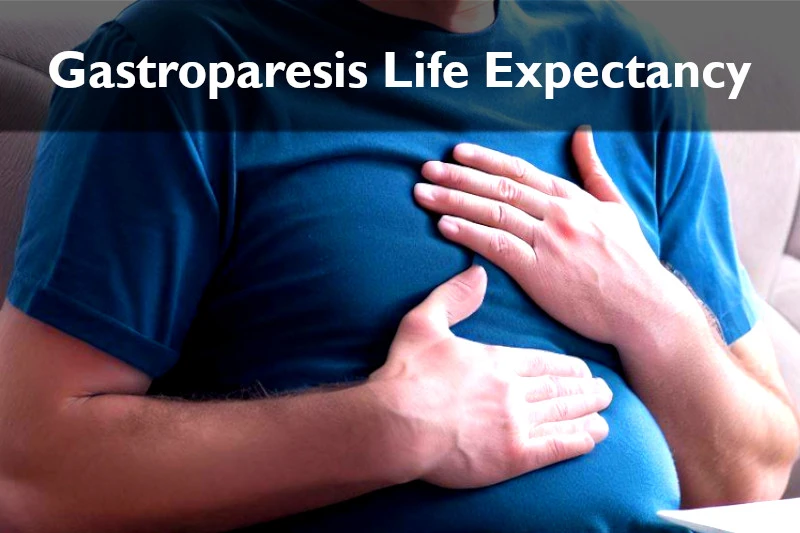Schizophrenia is a complex psychological condition. Unfortunately, there is no cure for it. However, it can be managed well. Many people have successfully managed their symptoms. As a result, they can live a balanced life and make their lives more productive.
Schizophrenia can affect anyone at any age. Schizophrenia’s onset typically occurs in late adolescence. The early 20s for men and the late 20s to early 30s for women. People younger than 12 or older than 40 are less likely to be diagnosed with schizophrenia. A person can live well with schizophrenia.
Schizophrenia treatments typically include antipsychotic drugs as the primary medication. It will reduce the symptoms of schizophrenia. They relieve schizophrenia symptoms through their impact on the brain’s neurotransmitter systems.
Other treatments for schizophrenia include cognitive and behavioral therapy. Therapies can then help “retrain” the brain once symptoms are reduced.
Using these methods helps improve communication, motivation, self-care, and coping mechanisms. As a result, those with schizophrenia can attend school, work, and socialize. Psychosocially treated patients adhere to their medication more consistently and experience fewer relapses and hospitalizations.
Table of Contents
Can Schizophrenia Go Away?
Schizophrenia will never truly go away. The underlying causes of schizophrenia are not yet fully understood. But those who seek treatment can lead productive lives.
The experts say that the outcome of the treatment is difficult to predict, but recovery is possible. The treatment immediately following the first episode of schizophrenia has a high success rate.
Fortunately, many people have learned how to cope with the symptoms of schizophrenia. Managing symptoms is a lifelong process. It ensures a stable and well-balanced life.
Does Schizophrenia Get Worse Without Medication?
The symptoms of schizophrenia will not improve by themselves if left untreated. As time goes on, the symptoms of schizophrenia will become more frequent and intense. As a result, many people suffer from depression, anxiety, and obsessive-compulsive disorder (OCD).
Aside from that, schizophrenia can quickly turn dangerous if not treated. There has been evidence that schizophrenia without treatment may cause neurological damage.
Schizophrenia patients may also have thoughts of harming themselves or others. In the absence of treatment, chronic paranoid delusions may eventually lead someone to act on those thoughts.
Does Schizophrenia Get Worse as You Age?
It is hard to say that schizophrenia and aging have a direct connection. Symptoms of schizophrenia can become worse with age in some cases. This is especially true if the patient stops or avoids treatment. People who are affected in their youth are also more vulnerable. People who suffer from schizophrenia in late life tend, to have less severe symptoms as they age.
It is worth mentioning to understand clearly. Older persons with schizophrenia and dementia do not necessarily get worse with age. It can get worse only if not managed properly. Those who get it at a young age can suffer from it more than those who get it later.
According to research, people living with schizophrenia experience a slower cognitive decline. Their cognitive decline is much slower than that of those without schizophrenia.
A study in 2018 also indicates that the following late-onset schizophrenia risk factors as high and low:
- weaker family history of schizophrenia
- lower rates of substance use
- Female preponderance
- comorbid physical health problems
- psychosis onset (for example unemployment)
People who are committed to medication enjoy a long-term balanced lifestyle. As they grow older, their quality of life improves as well. The psychosocial function may even improve with age. As people age, they can improve their quality of life.
Negative Symptoms of Schizophrenia
Schizophrenia is characterized by a range of difficulties in cognitive functioning (rational thinking), behavior, and emotion. Signs and symptoms may vary from person to person. However, they usually involve delusions, hallucinations, or disorganized speech. Additionally, they indicate a reduced capacity for functioning. Signs and symptoms may include:

Symptoms in Adults
- Delusions – Consistent beliefs or altered realities that persist despite evidence or agreement to the contrary. Usually in relation to mental disorders.
- Hallucinations – Something that is perceived to have been seen, heard, touched, tasted, or smelled but was not present.
- Disorganized thinking
- Extremely disorganized or abnormal motor behavior
- Negative symptoms – Reduction in function or inability to function normally. Examples include neglecting personal hygiene or appearing emotionless. The person makes no eye contact or shows no facial expressions. Additionally, they may lose interest in typical daily activities. Socially withdrawn or unable to experience happiness.
Suicidal ideas and behaviors:
People with schizophrenia are prone to suicidal thoughts and behaviors. Make sure someone stays with your loved one if he or she is in danger or has attempted suicide. If you see them in danger, contact 911 right away. If you can handle it safely, take him or her to the nearest hospital emergency room.
Symptoms in Teenagers
Teenagers and adults with schizophrenia experience similar symptoms. It may be difficult, however, to recognize the condition in adolescents. Among the symptoms of teenage schizophrenia are:
- Social withdrawal from friends and family
- Performing poorly at school
- Sleeping difficulties
- A depressed mood or irritability
- An absence of motivation
A low oxytocin level measured after trust-related interactions significantly predicted schizophrenia symptoms. This study suggests that lower levels of trust-related oxytocin may contribute to negative symptoms. These symptoms may be related to social withdrawal, isolation, and flattening effects in schizophrenia patients.
Comparison to Adults’ Symptoms
Teens may exhibit the following symptoms in comparison with adults:
- Delusions are less likely to occur
- Visual hallucinations are more common
Caution
There are signals you might be confused with, and it’s important to be aware of them.
There is a possibility that children will use recreational substances. For example, marijuana, methamphetamines, or LSD. There may sometimes be similarities in the signs and symptoms of schizophrenia.
Helping Someone with Schizophrenia
Talk to your loved one about your concerns if you suspect they might have schizophrenia symptoms. Though, you can’t force someone to seek medical attention. You can, however, support them and encourage them. You can help them locate a qualified doctor or mental health professional.
Your loved ones may exhibit the following signs:
- Posing a danger to oneself or others.
- Is unable to provide his or her food.
- Can not provide clothing.
- Not able to find the self shelter
It’s best to call 911 or seek other emergency assistance to help the affected person. The individual could then be evacuated by a mental health professional. In the case of necessity, a mental health professional will take appropriate actions, including hospitalization.
It’s best to call 911 or seek other emergency assistance to help the affected person. The individual could then be evacuated by a mental health professional. In the case of necessity, a mental health professional will take appropriate actions, including hospitalization.
The laws governing involuntary mental health treatment vary by state. Contact your local police department or community mental health agency for more information.
Foods for Schizophrenia
Here is a list of foods and herbs that help with schizophrenia symptoms. These foods help in the release of stress and anxiety. Helps in maintaining a healthy nervous system, boosting brain function, and protecting the body from harmful free radicals.
- Licorice Root
- Green Cardamom Seeds
- Ginkgo Biloba
- Indian Gooseberry (Amla)
- Holy Basil Leaves (Tulsi)
- Ghee And Almonds
- Cold Water Fish
- Asian Ginseng
- Carrots
- Chamomile
- St John’s Wort
- Ashwagandha
- Spinach Leaves
- Passionflower
- Brahmi
You can reduce schizophrenia symptoms by ensuring you consume these foods and herbs. Exercising regularly is also very important for people suffering from schizophrenia. You should avoid or reduce your consumption of refined sugars and wheat bread.
International Mental Health Research Symposium
Related to Mental Health including Schizophrenia Virtual Symposium is annually held. You can get the latest details on schizophrenia from the conference. William T. Carpenter, Jr. is an M.D. of Maryland Psychiatric Research Center and the University of Maryland School of Medicine. He delivered the Keynote Speech at the Brain & Behavior Research Foundation 2019 International Mental Health Research Symposium in New York City.
Takeaway
Schizophrenia is a lifelong illness. An individual’s ability to function in their daily lives can be profoundly affected. This may also have an impact on those around them.
The symptoms of schizophrenia can be managed with treatment. Family, friends, and community services can also be helpful to people with schizophrenia.
People who care for someone with schizophrenia can help by learning how to spot the onset of an episode. Providing assistance to the individual in seeking treatment and adhering to their treatment plan.
Frequently asked questions about schizophrenia:
At what age does schizophrenia get bad?
Schizophrenia doesn’t have a specific age at which it becomes bad or worse. The condition may worsen only if you do not take treatment or stop treatment. It is important to continue schizophrenia treatment after onset in order to alleviate symptoms. Treatment is a lifelong process. The process is not difficult, but you should be committed to it.
Do schizophrenics get worse as they get older?
It does not necessarily have to get worse. Schizophrenia is not age-related. The key is to continue taking medication for schizophrenia. Stopping or neglecting it will make it worse. Otherwise, you can live a happy and fulfilling life.
What is the average lifespan of a person with schizophrenia?
A study found that schizophrenia was associated with an average loss of 14.5 years of potential life. The loss of life is greater in men than in women.
Men: 15.9 years
Women: 13.6 years
In schizophrenia patients, the life expectancy was reduced to 64.7 years
Men: 59.9 years
Women: 67.6 years
Does schizophrenia get worse if untreated?
Mental health can deteriorate when people with schizophrenia live without adequate treatment. Symptoms of schizophrenia can become more severe, and patients may develop additional mental health conditions, including:
Anxiety Disorders
Depression
Obsessive-Compulsive Disorder (OCD)
6 Sources
Noble Home Remedies relies on peer-reviewed studies, academic research institutions, and medical associations for accuracy and reliability while avoiding tertiary references. Our editorial policy provides more information about how we ensure our content is accurate and up-to-date.
- Late Life Schizophrenia: New Research Findings – The American Journal of Geriatric Psychiatry
- Schizophrenia – by Mayo Clinic
- Risk factors in early and late-onset schizophrenia – Published in Pubmed
- Schizophrenia in late life: emerging issues – Published in PMC
- Schizophrenia – By National Alliance of Mental Illness
- What is Schizophrenia? – By The Brain & Behavior Research Foundation






